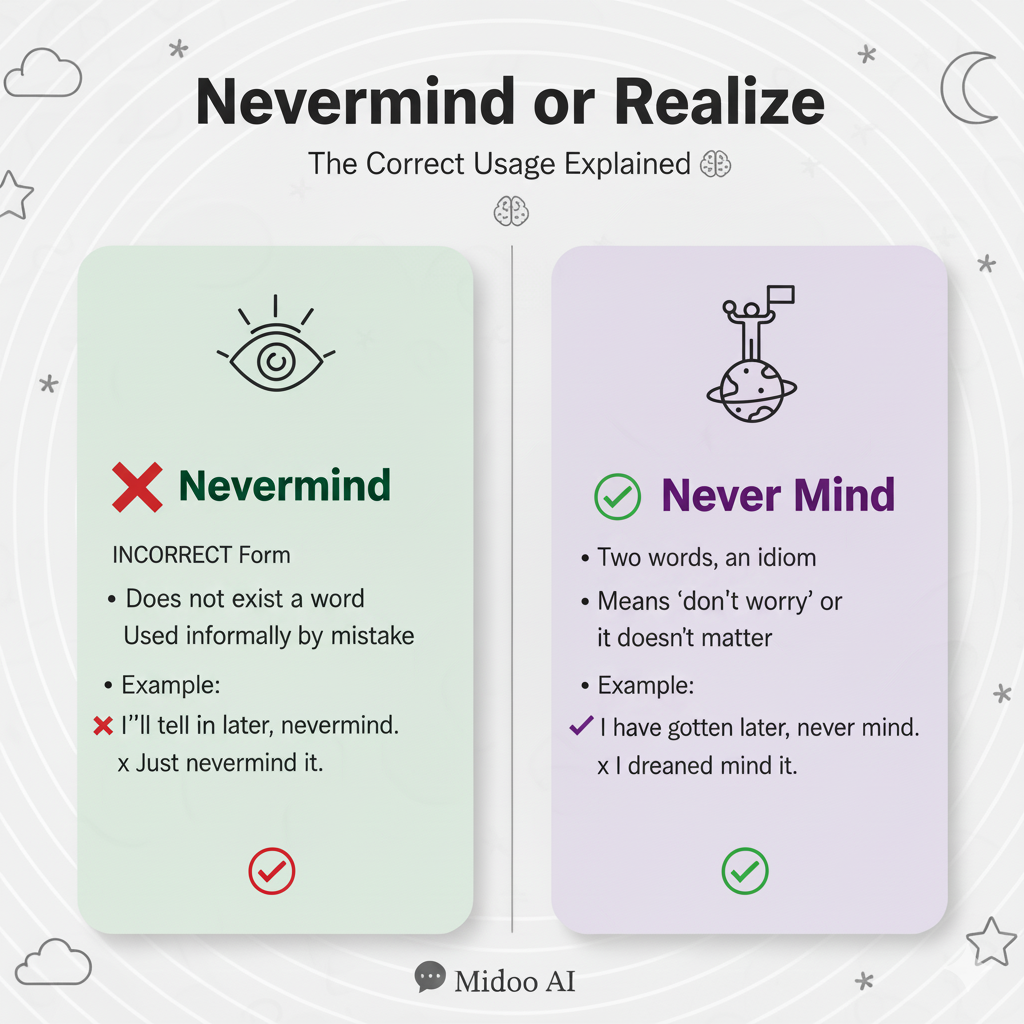Nevermind vs. Never Mind: Which One Should You Use?

At Midoo AI, we often see learners mixing up “nevermind” and “never mind.”
They look almost the same, but they don’t mean the same thing.
The truth is: “never mind” is the correct phrase in most situations, while “nevermind” is very rare and has a different meaning.
Let’s break it down so you’ll never confuse them again.
Never Mind — The Correct Phrase ✅
“Never mind” is the standard and correct phrase used in everyday English.
It means “don’t worry about it” or “forget it.”
It’s used when you want someone to stop thinking or talking about something.
Examples:
- Never mind, it’s not important.
- Oh, never mind—I found my keys.
- Never mind what he said.
- If you can’t do it, never mind.
- Never mind the mess, come in and sit down.
💡 Tip: Use “never mind” whenever you want to drop a topic or tell someone not to worry. This is the correct and common choice.
Nevermind — A Rare Noun 🎵
“Nevermind” (written as one word) is not standard in modern English.
It is sometimes used as a noun meaning “no importance,” but this is old-fashioned and uncommon.
Most people only see “Nevermind” as the title of a famous Nirvana music album.
Examples:
- He showed a nevermind attitude. (very rare, old use)
- Nevermind is a classic rock album. (proper noun)
💡 Tip: Avoid using “nevermind” in normal writing or conversation — it can look like a spelling mistake.
Quick Memory Trick
- ✅ Never mind = correct everyday phrase (“forget it”)
- ⚠️ Nevermind = rare noun or album title
Example:
- Correct: Never mind, I’ll do it myself.
- Wrong: Nevermind, I’ll do it myself. ❌
FAQ
Q: Is “nevermind” ever correct?
A: Only as a noun or proper name, like the Nirvana album. In normal conversation, always use “never mind.”
Q: Is “never mind” one or two words?
A: Always two words in normal use.
Q: Do native speakers ever write “nevermind”?
A: Sometimes in casual texts, but it’s still considered a mistake.
Q: Which one should I use in writing or exams?
A: Always use “never mind.” It’s the correct and accepted form.